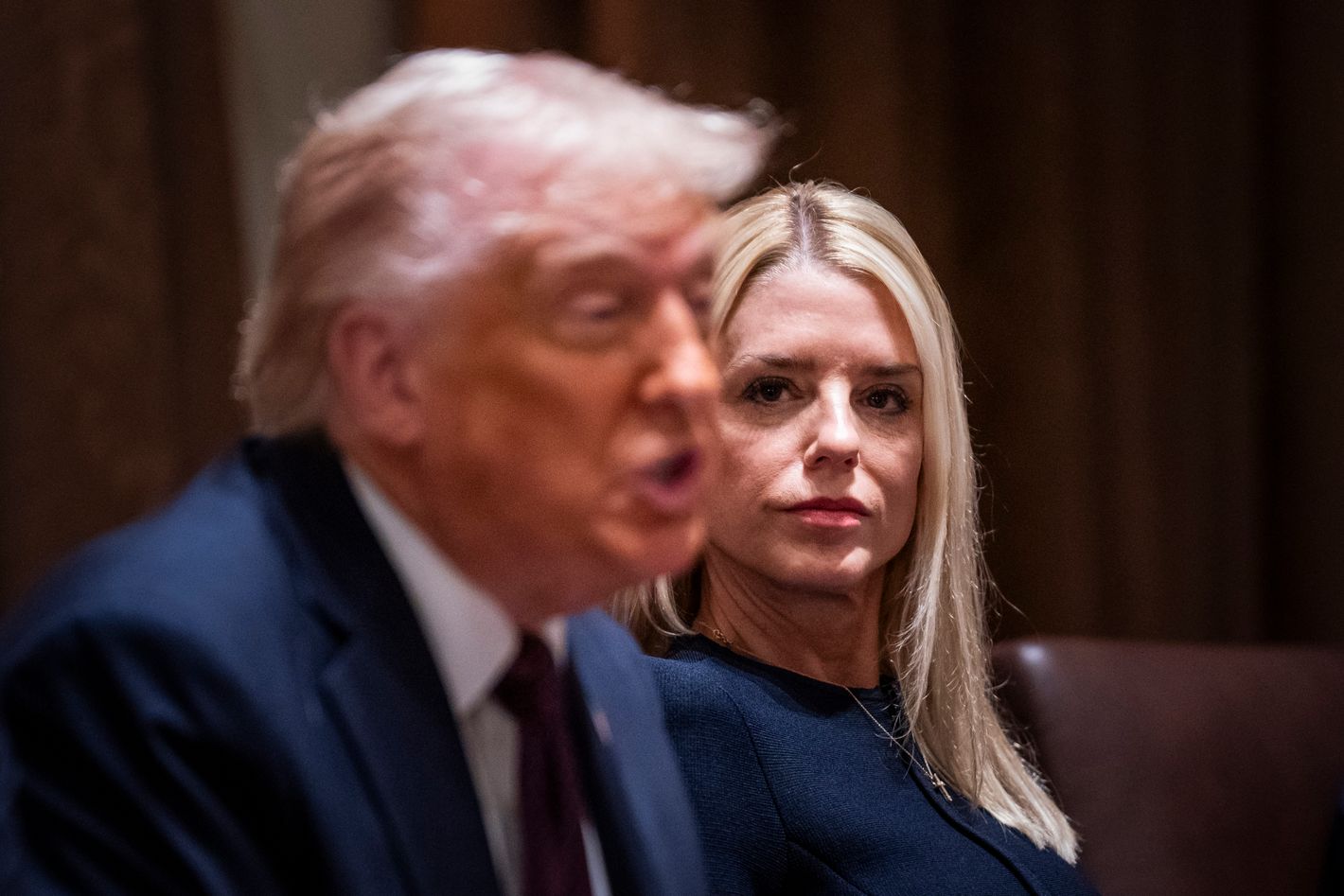Photo: Jabin Botsford/The Washington Post via Getty Images
Donald Trump’s presidential payback tour rages on, and now it’s personal. It’s one thing to target multibillion-dollar law firms, universities, and media outlets for organizational retribution; those efforts, aimed at stifling and punishing any criticism or dissent, are reprehensible in their own right. But now Trump is going after individual private citizens, using the might of the executive branch to potentially throw his detractors in prison.
In a pair of official proclamations — rendered no less unhinged by the use of official fonts and White House letterhead — Trump identifies two targets who worked in the federal government during his first tenure and dared to speak out publicly against him. First: Chris Krebs, who led the Cybersecurity and Infrastructure Security Agency from 2018 to 2020 and made headlines when he publicly contradicted Trump’s false claim that the 2020 presidential election was stolen. For this act of heretical truth-telling, Trump labels Krebs “a significant bad-faith actor” — whatever the hell that means — who poses grave “risks” to the American public.
And then there’s Miles Taylor, a former Department of Homeland Security official who publicly criticized the president in an anonymous book and various media appearances. Taylor, like Krebs, purportedly poses “risks” to the United States, is a “bad-faith actor” (though apparently not a significant one like Krebs), and “stoked dissension” with his public commentary.
Are you scared? Don’t you fear the “risks” posed by these two monsters?
True to the form he has displayed when going after disfavored law firms, Trump hits below the belt. The president ordered security clearances stripped not only from Krebs and Taylor but also from everyone who works with them (Krebs at a private cybersecurity firm, Taylor at the University of Pennsylvania). He’s punishing his targets — plus their employers and colleagues, First Amendment freedom of association be darned.
It gets worse. In a separate set of orders, Trump directed the attorney general to open criminal investigations of Krebs and Taylor. Notably absent from the orders is any plausible notion that either might have committed a federal crime. This hardly needs to be said, but it’s not a federal crime to be a “bad-faith actor,” to “stoke dissension,” or even to be a “wise guy,” as Trump called Krebs from the Oval Office.
The next move is Pam Bondi’s — and we know how this will go.
Any reasonable, ethical attorney general would follow the bedrock principle that a prosecutor must have “predication” — some kernel of fact on which to believe a crime might have been committed — to open a criminal investigation. The bar is low, but it serves the vital purpose of preventing precisely the baseless retributive inquests that Trump has now ordered up. In observance of this foundational precept, even Bill Barr — the subject of sharp criticism in my first book, Hatchet Man — generally ignored Trump’s public pleas for the arrests of Barack Obama, Joe Biden, and others. Like the exhausted parent of an unruly toddler, Barr would mostly sit back and let the tantrum pass.
Don’t count on Bondi taking the same course of passive resistance to the president. She has already shown her true colors, and they’re whatever shade Trump pleases. For example, despite the distinct possibility of criminality by top administration officials around the Signal scandal, the AG refused even to investigate. Instead, she decreed — after zero inquiry, with zero evidence — that information about military attack plans was somehow not classified, and that nobody had acted recklessly. Case closed; no inquiry needed.
Bondi no longer deserves the benefit of the doubt. She’s in the bag for Trump. The question now is whether she’ll cross the line that even Barr, her crooked predecessor, would not, and use the Justice Department’s staggering investigative power as an offensive weapon.
Even if the DoJ investigates but concludes it cannot bring a criminal charge, the threat to Krebs and Taylor is real. Any criminal inquiry takes an enormous toll on its subject; subpoenas fly, friends and colleagues get pulled into the grand jury, phones get seized and searched, legal costs mount, professional reputations suffer, personal ties fray. Ask anyone who has been investigated by the Justice Department but not indicted. They’ll tell you it’s a nightmare.
If Bondi does somehow convince a grand jury to indict somebody for something, Trump has unwittingly handed both Krebs and Taylor a potent defense: selective prosecution, which applies when an individual has been singled out for improper purposes. Exhibit A (for the defense): Trump’s own grand proclamations, which openly confess to his personal and political motives for ordering a Justice Department inquiry. Selective-prosecution defenses rarely succeed, often because prosecutors typically don’t commit their improper motives to paper. But this would be the rare case in which the evidence is so plain — it’s on White House letterhead, signed by the president — that a judge could hardly overlook it.
Trump has long made a habit of threatening his opponents with criminal prosecution through social-media posts and spontaneous outbursts from the lectern. Until now, it was mostly bluster, a public form of scream therapy for the capricious commander-in-chief. But now it’s in writing, from the president to the attorney general, who typically jumps to attention to serve whatever suits the boss, prosecutorial standards be darned. Trump’s dark fantasies are coming to life.
This article will also appear in the free CAFE Brief newsletter. You can find more analysis of law and politics from Elie Honig, Preet Bharara, Joyce Vance, and other CAFE contributors at cafe.com.

